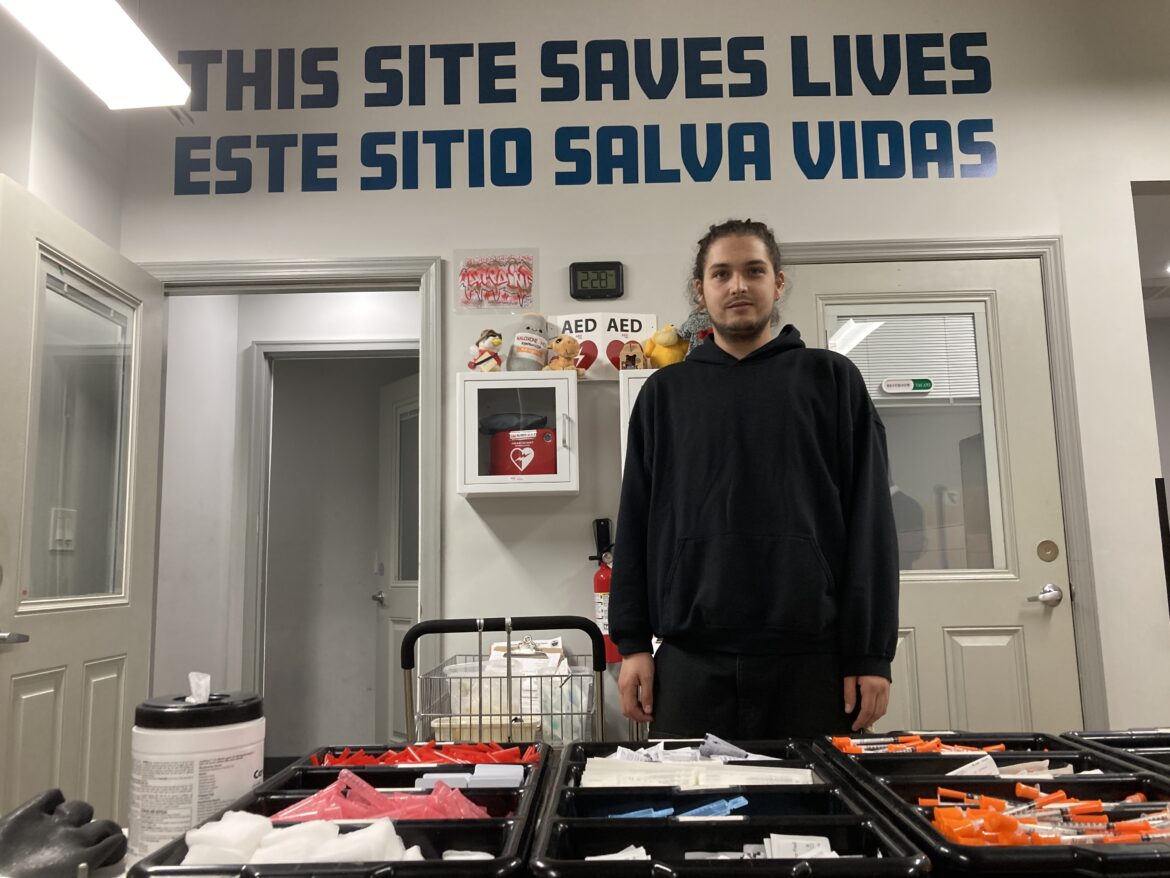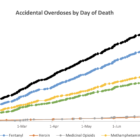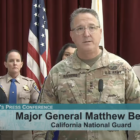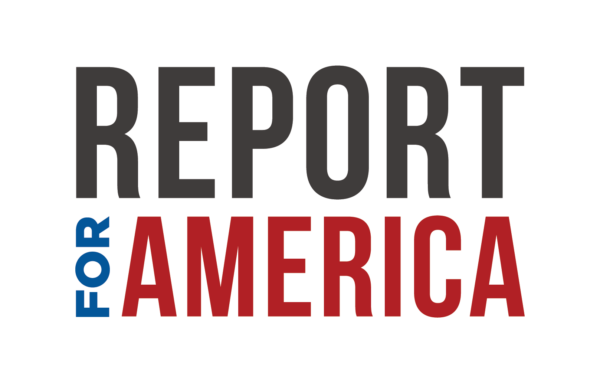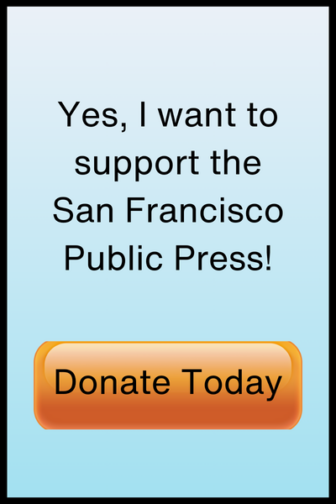This article is adapted from an episode of our podcast “Civic.” Click the audio player below to hear the full story.
San Francisco has seen a 15% reduction in drug overdose deaths this year with 462 people dying in the first eight months of 2024. That is still an “alarmingly high” mortality rate and it may increase again, said Dr. Grant Colfax, the city Department of Public Health director.
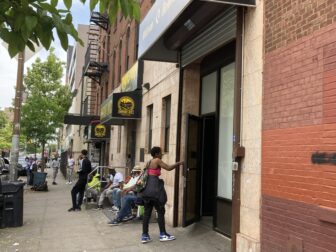
Sylvie Sturm / San Francisco Public Press
Visitors gather outside OnPoint NYC where staffers have reversed more than 1,500 overdoses with no deaths since the site opened in November 2021.Nevertheless, when asked at an overdose awareness day event in August what happened to the department’s plan to open safe consumption sites, Colfax said: “What our focus is right now is continuing to make sure that people have access to treatment.” That’s despite research showing such facilities — also known as overdose prevention centers — save lives, reduce drug use in public, increase access to life-saving treatment and care and reduce public spending on emergency services.
Instead, the Department of Public Health is relying on a new 24-hour-a-day outreach initiative that provides unhoused drug users with the opioid dependency medication buprenorphine.
This “Civic” episode goes inside an overdose prevention center run by OnPoint NYC to hear from staffers and people who have received help with treatment for substance use disorders and other challenges associated with addiction.
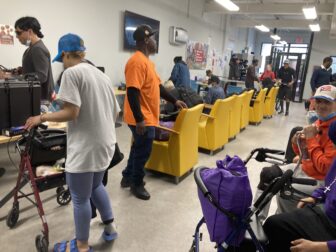
Sylvie Sturm / San Francisco Public Press
Clients gather in the OnPoint NYC waiting area. Staffers have reversed more than 1,500 overdoses with no deaths since the site opened in November 2021.Meanwhile, more cities and states are embracing overdose prevention centers. Last February, the Providence City Council in Rhode Island approved a state-sanctioned overdose prevention center. In April, Minneapolis nonprofit Minnesota Overdose Awareness opened a safe injection site thanks to legislation signed in 2023 by Gov. Tim Walz, presidential candidate Kamala Harris’ running mate. And in June, the Vermont Legislature overrode the governor’s veto of a bill to sanction an overdose prevention center in Burlington, an addiction hot spot.
But San Francisco appears to have abandoned the strategy, despite previously having the support of Mayor London Breed and city supervisors. Talk of overdose prevention centers has not come up in any meaningful way during election campaigning. And elected officials did not reply to calls and emails in August requesting an update.
At a mayoral candidate debate in June, Breed suggested city attorneys could face disbarment for enabling the launch of an overdose prevention center because of prohibitions under state law. But in New York City, the nonprofit organization OnPoint NYC worked with the city to skirt legal liability and opened two centers in November 2021. Their efforts have cleaned up surrounding neighborhoods and reversed more than 1,500 overdoses in less than three years with no deaths, according to OnPoint.
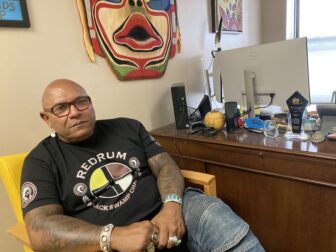
Sylvie Sturm / San Francisco Public Press
Sam Rivera, OnPoint NYC’s executive director, says the overdose prevention center is not only saving lives but also helping clients reconnect with loved ones and become employable.[Read and listen to our previous reporting on San Francisco’s overdose crisis and ongoing prevention efforts.]
A study published in the New England Journal of Medicine in April found that the centers kept people alive and kept them from consuming drugs in public. And a 2022 study published in the Journal of the American Medical Association found that the centers did not increase crimes recorded by police or calls for emergency services in the surrounding neighborhoods.
OnPoint’s efforts are also improving lives, said Sam Rivera, the organization’s director.
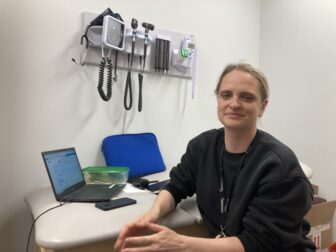
Sylvie Sturm / San Francisco Public Press
Susan Spratt, OnPoint NYC’s associate director of clinical services, says the key to the overdose prevention center’s success is treating every client with dignity.“The anecdotal things around reunification with children and reunification with families and becoming employable again — these are things that would never have happened for these folks,” Rivera said.
The success is in large part due to OnPoint’s dedication to treating each client with dignity, said Susan Spratt, OnPoint’s associate director of clinical services.
“We’re seeing people who are often not seen, they’re stepped over, literally, in the streets,” Spratt said. “This has been said to me more than once, to me and to multiple staff members in our clinic: ‘I feel like you’re really listening to me. I haven’t been listened to in a long time. So, thank you.’”
